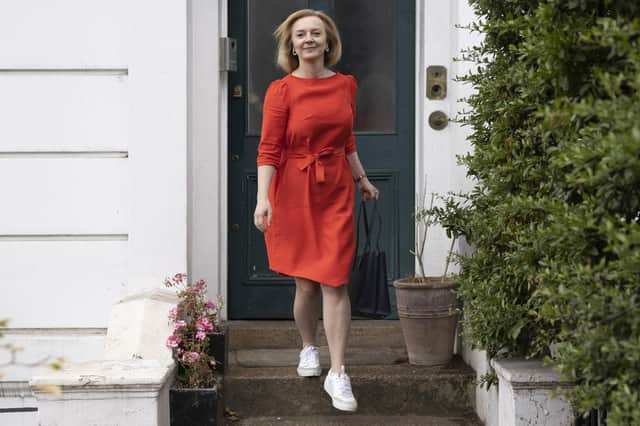Liz Truss must not roll back anti-obesity measures like sugar tax – Stephen Jardine


From midnight stores have been banned from displaying crisps and chocolate near entry points and checkouts, a move designed to lower the visibility of products high in fat, sugar and salt and help tackle the obesity crisis.
It’s one of the biggest legislative shake-ups the retail sector has faced in recent years but despite being months in the planning, shops have still been relocating products over the past few days. No wonder, these impulse purchases are highly profitable.
Advertisement
Hide AdAdvertisement
Hide AdIn much the same way as cigarettes are now sold effectively under the counter, from now on you will have to search out that KitKat or Fruit and Nut bar if you want it in your shopping basket. It seems we can’t be trusted to make good health decisions and need to be saved from ourselves.
Actually, it’s more complicated than that. Any parent in a supermarket queue with a hungry child knows the pester power attached to visible, highly marketed sweets and chocolate. Putting them out of harm’s way is no bad thing.
But blaming our poor choices and the rapacious supermarkets is to miss the key driving force behind this. Manufacturers know exactly what is in their products and the effect that has on the nation’s health.
Reformulating products to reduce fat and sugar levels is the surest way to tackle obesity but in an industry obsessed with maintaining and building market share, change is slow and difficult.
The Soft Drinks Industry Levy helped transform that sector. The so-called sugar tax on soft drinks resulted in over 50 per cent of manufacturers reformulating to produce healthier products. As a result, according to the Medical Research Council, the amount of sugar consumed in fizzy drinks, fell in households across the land by ten per cent.
In a country where two-thirds of adults are overweight and 14 per cent of children are obese, these measures are essential but right now they are under serious threat.
New Prime Minister Liz Truss is said to be a long-term critic of so-called ‘nanny state’ policies and believes it’s not the job of the government to tell people what to eat or drink. Along with the Chancellor, she is reportedly reviewing anti-obesity measures like the sugar tax in the light of the cost-of-living crisis.
The theory presumably is that every little helps. The reality is that this is exactly the moment when we need these measures more than ever before.
Advertisement
Hide AdAdvertisement
Hide AdThe cheapest food in just about every supermarket is the worst for us. Healthy choices almost always cost more. For families struggling to heat their homes and put food on the table, there will be enough difficult decisions to make this winter.
No-one wants to eat unhealthy food but manufacturers and retailers have created a system where it is all too easy. It’s the job of the government to intervene and regulate for the good of their citizens.
On top of that, the Prime Minister and the Chancellor probably have their hands full trying to save the economy from the impact of their fiscal decisions. Interfering in anti-obesity legislation that has been introduced for the good of all of us is the last thing they need to add to their plates.
Comments
Want to join the conversation? Please or to comment on this article.
